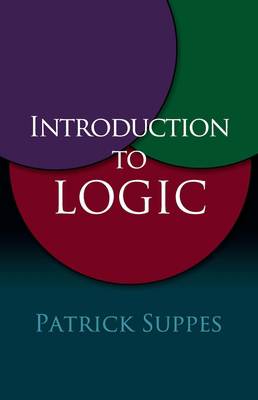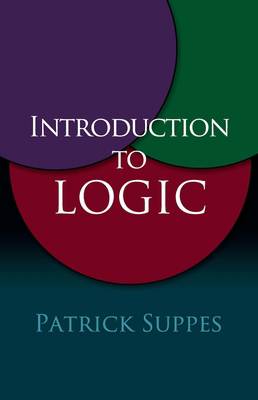
Je cadeautjes zeker op tijd in huis hebben voor de feestdagen? Kom langs in onze winkels en vind het perfecte geschenk!
- Afhalen na 1 uur in een winkel met voorraad
- Gratis thuislevering in België vanaf € 30
- Ruim aanbod met 7 miljoen producten
Je cadeautjes zeker op tijd in huis hebben voor de feestdagen? Kom langs in onze winkels en vind het perfecte geschenk!
- Afhalen na 1 uur in een winkel met voorraad
- Gratis thuislevering in België vanaf € 30
- Ruim aanbod met 7 miljoen producten
Zoeken
€ 25,45
+ 50 punten
Omschrijving
This well-organized book was designed to introduce students to a way of thinking that encourages precision and accuracy. As the text for a course in modern logic, it familiarizes readers with a complete theory of logical inference and its specific applications to mathematics and the empirical sciences.
Part I deals with formal principles of inference and definition, including a detailed attempt to relate the formal theory of inference to the standard informal proofs common throughout mathematics. An in-depth exploration of elementary intuitive set theory constitutes Part II, with separate chapters on sets, relations, and functions. The final section deals with the set-theoretical foundations of the axiomatic method and contains, in both the discussion and exercises, numerous examples of axiomatically formulated theories. Topics range from the theory of groups and the algebra of the real numbers to elementary probability theory, classical particle mechanics, and the theory of measurement of sensation intensities.
Ideally suited for undergraduate courses, this text requires no background in mathematics or philosophy.
Part I deals with formal principles of inference and definition, including a detailed attempt to relate the formal theory of inference to the standard informal proofs common throughout mathematics. An in-depth exploration of elementary intuitive set theory constitutes Part II, with separate chapters on sets, relations, and functions. The final section deals with the set-theoretical foundations of the axiomatic method and contains, in both the discussion and exercises, numerous examples of axiomatically formulated theories. Topics range from the theory of groups and the algebra of the real numbers to elementary probability theory, classical particle mechanics, and the theory of measurement of sensation intensities.
Ideally suited for undergraduate courses, this text requires no background in mathematics or philosophy.
Specificaties
Betrokkenen
- Auteur(s):
- Uitgeverij:
Inhoud
- Aantal bladzijden:
- 336
- Taal:
- Engels
- Reeks:
Eigenschappen
- Productcode (EAN):
- 9780486406879
- Verschijningsdatum:
- 26/01/1999
- Uitvoering:
- Paperback
- Formaat:
- Trade paperback (VS)
- Afmetingen:
- 137 mm x 215 mm
- Gewicht:
- 340 g

Alleen bij Standaard Boekhandel
+ 50 punten op je klantenkaart van Standaard Boekhandel
Beoordelingen
We publiceren alleen reviews die voldoen aan de voorwaarden voor reviews. Bekijk onze voorwaarden voor reviews.









